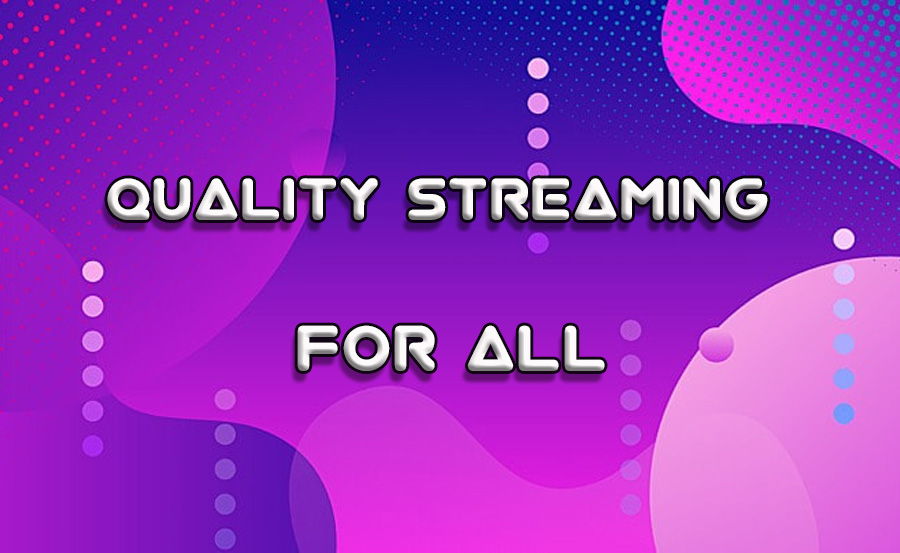The growth of IPTV (Internet Protocol Television) has redefined how households consume content, bringing live TV, on-demand shows, and movies directly over the internet. However, the quality of IPTV streaming heavily relies on the performance of Internet Service Providers (ISPs). Without a robust internet connection, even the most advanced IPTV service can struggle, resulting in buffering, lag, or pixelated images. ISPs play a crucial role in delivering consistent, high-speed connectivity to ensure that viewers enjoy a seamless IPTV experience.
Buy 6 Months IPTV for Endless Entertainment
How ISPs Support IPTV Streaming
To understand the ISP’s role in IPTV, it’s essential to grasp how IPTV content is delivered. Unlike traditional cable, which transmits data over coaxial or fiber-optic cables specifically for television signals, IPTV uses IP-based networks, the same networks ISPs provide for web browsing, gaming, and other internet activities. IPTV providers rely on ISPs to maintain adequate bandwidth, low latency, and minimal packet loss to ensure high-quality streaming.
Here are some ways ISPs contribute to an enhanced IPTV experience:
- High-Speed Internet Packages: ISPs offer high-speed internet packages that cater specifically to households streaming IPTV. Higher speeds reduce buffering, ensuring smooth playback of HD or even 4K video. This is particularly vital in multi-user households where multiple streams or devices may be used simultaneously.
- Consistent Bandwidth Availability: IPTV services require a steady stream of data to prevent interruptions. ISPs are responsible for maintaining bandwidth stability, especially during peak hours. To meet this demand, many ISPs now provide fiber-optic connections, which deliver faster, more consistent speeds compared to traditional broadband options.How to Stream IPTV on Enigma2: From Basics to Advanced Tips
- Quality of Service (QoS) Management: ISPs employ Quality of Service (QoS) protocols to prioritize IPTV traffic over other types of internet usage. QoS management helps ensure that IPTV streams are less affected by network congestion, allowing viewers to watch their favorite shows and live events without interruptions.
- Optimizing for Low Latency: Latency, or delay in data transmission, can significantly impact live IPTV streaming. ISPs strive to keep latency low, especially for IPTV users watching live sports or news broadcasts, where even a slight delay can affect the viewing experience.
- Content Delivery Partnerships: Many ISPs partner with Content Delivery Networks (CDNs) to cache popular IPTV content closer to viewers. This minimizes the distance data has to travel, enhancing streaming speed and reducing buffering. CDNs and ISPs work hand-in-hand to make streaming faster and more reliable.
ISP Challenges in Providing High-Quality IPTV
Despite their efforts, ISPs often face unique challenges in delivering seamless IPTV services:
- Network Congestion: During peak hours, such as evenings when families stream content simultaneously, network congestion can slow down internet speeds. ISPs have to invest in infrastructure upgrades to manage this demand and reduce the risk of degraded IPTV service.
- Rural and Remote Connectivity Issues: In rural or less populated areas, internet options are often limited, and speeds can be slower. Some ISPs are working on expanding fiber-optic networks to underserved areas, but this rollout takes time and investment, affecting IPTV availability for some users.
- Data Caps and Throttling: Some ISPs have data caps that limit the amount of data users can consume within a billing period. Exceeding these limits may lead to throttling, which reduces internet speeds and disrupts IPTV streaming. Many ISPs now offer data-cap-free plans for users who rely heavily on IPTV.
The Future of ISP and IPTV Collaboration
As IPTV grows in popularity, ISPs are innovating to meet the rising demand for high-quality streaming. The arrival of 5G technology offers ISPs new ways to enhance IPTV service, especially in areas where fiber-optic infrastructure is challenging to deploy. With 5G, ISPs can deliver ultra-fast internet directly to homes, providing speeds capable of supporting multiple HD or 4K streams with minimal latency.
In addition, ISPs are exploring adaptive bitrate streaming, where the IPTV service adjusts video quality based on available bandwidth. This ensures uninterrupted playback, albeit at a reduced resolution, when network congestion or connectivity issues arise.
Tips for Viewers to Maximize IPTV Quality
For households relying on IPTV, there are a few practical steps to enhance streaming quality:
- Choose the Right Internet Package: Opt for an internet plan that supports your streaming needs. Generally, 25 Mbps is recommended for HD streaming, while 50 Mbps or more is preferable for 4K streaming.
- Upgrade to a Modern Router: An outdated router can be a bottleneck, especially for IPTV streaming. A modern, high-speed router with dual-band or tri-band capability improves streaming quality by providing faster Wi-Fi speeds.
- Connect via Ethernet When Possible: A wired connection between your device and the router ensures a more stable internet connection, which is beneficial for high-definition IPTV streaming.
- Monitor Network Usage: During streaming, reduce other bandwidth-intensive activities like large downloads or online gaming, which can impact IPTV performance.Advanced IPTV Configurations: Maximizing Multi-Device Streaming Efficiency
Conclusion: The Synergy of ISPs and IPTV
For IPTV services to deliver on their promise of seamless, high-quality streaming, ISPs play an indispensable role. They provide the infrastructure, bandwidth, and technology required for uninterrupted viewing experiences, allowing viewers to fully enjoy the benefits of IPTV. As ISP technology continues to evolve with advancements like 5G and improved fiber-optic networks, the future of IPTV streaming looks promising, with faster speeds, better connectivity, and enhanced viewing quality on the horizon.


